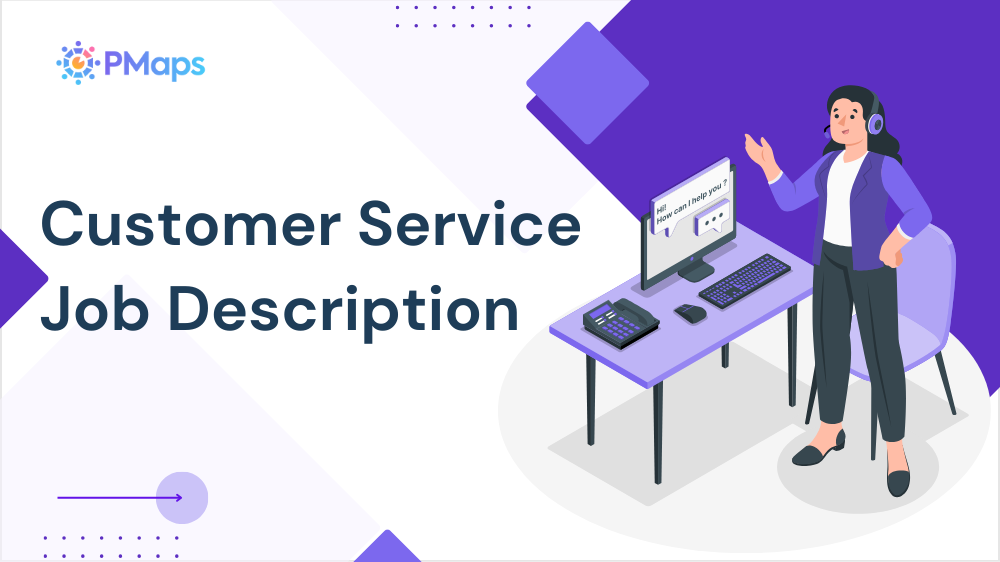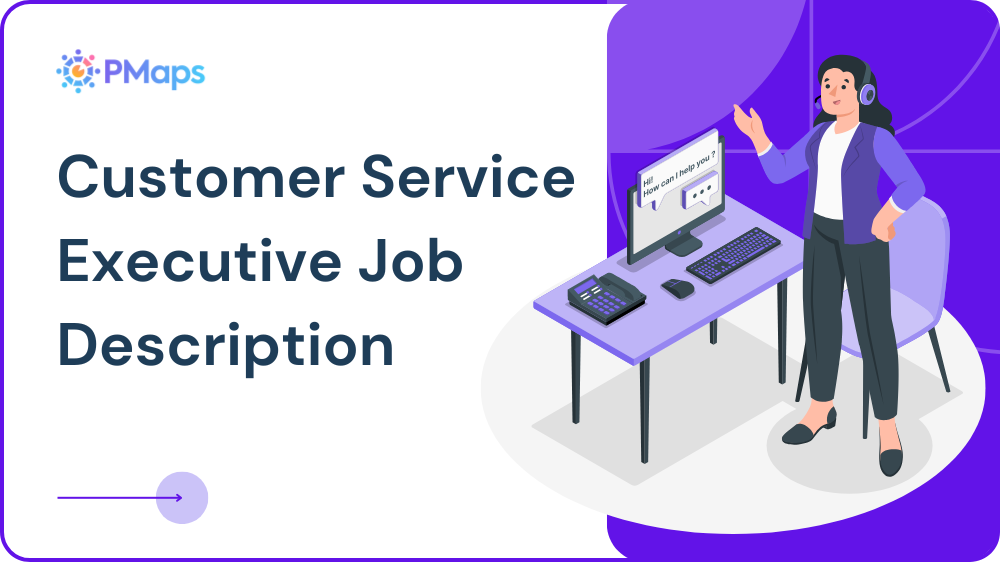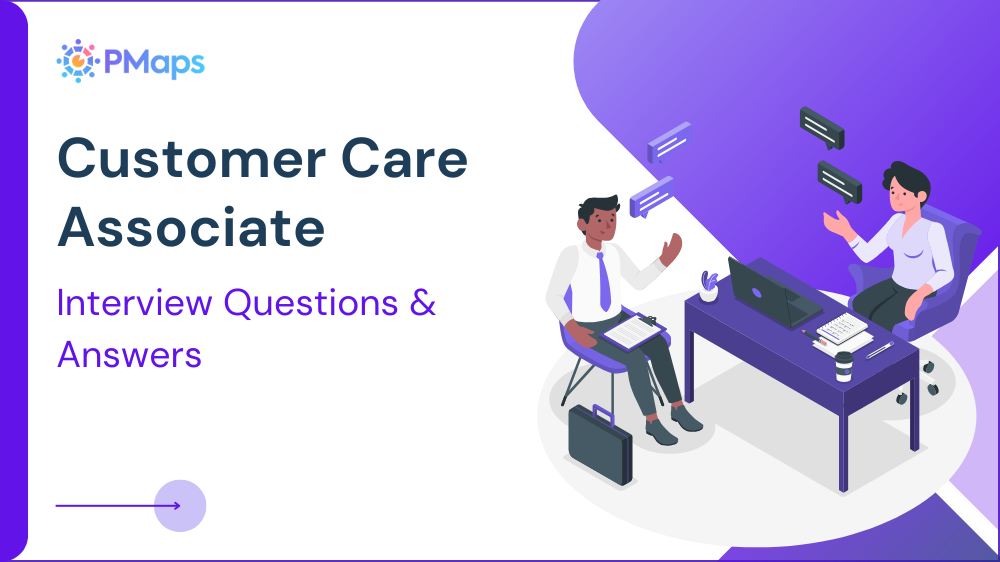
Your customer service executive is more than a support agent—they’re a revenue protector and a brand ambassador. A recent Zendesk report reveals that 70% of consumers say a positive support experience influences repeat buying decisions.
Can they really deliver? Let the Customer Service Executive Assessment confirm it.

Hiring the right customer service executive isn’t just about voice clarity or email etiquette. It’s about finding someone who can diffuse frustration, resolve problems efficiently, and maintain empathy without losing pace.
This blog delivers 25 targeted customer service executive interview questions and answers, curated to help you:
- Evaluate service mindset and conflict-resolution skills
- Distinguish candidates who balance speed with empathy
- Test real-world problem-solving and CRM fluency
- Shortlist freshers and experienced agents with customer-first instincts
Want to double-check scope? See the Customer Service Executive Job Description.
General Interview Questions for Customer Service Executive
The first round of a customer service executive interview should help you assess whether the candidate understands the value of support—not just the script. These questions focus on attitude, clarity, and real motivation to serve.
Sample Candidate Answer: I enjoy helping people feel heard and understood, especially when they’re frustrated. To me, great service means being responsive and respectful—even when you don’t have an immediate solution. I stay calm by listening carefully and focusing on solving the issue, not just ending the call.
Here are five essential customer executive interview questions to begin with:
1. Why did you choose to work in customer service?
What it Assesses: Service mindset and intent
What to Listen For: Look for genuine interest in solving problems, helping people, or representing a brand—not just fallback career answers.
2. What does excellent customer service mean to you?
What it Assesses: Conceptual clarity
What to Listen For: Answers that combine empathy, speed, first-contact resolution, and customer satisfaction—not just "politeness."
3. How do you stay calm when speaking with a frustrated customer?
What it Assesses: Emotional control and professionalism
What to Listen For: Personal techniques—breathing, active listening, repeating back concerns, or scripting responses under pressure.
4. What customer service channels are you comfortable working with?
What it Assesses: Channel flexibility
What to Listen For: Voice, email, chat, social media, and CRM platforms. Look for clarity on tone adjustments across mediums.
5. What are your strengths that make you a good customer service executive?
What it Assesses: Self-awareness and role fit
What to Listen For: Mention of patience, product understanding, adaptability, or communication. Avoid overly vague strengths like "hardworking."
These early-stage customer experience executive interview questions reveal if a candidate brings empathy, thoughtfulness, and a willingness to support—not just scripted politeness.
Behavioral Interview Questions for Customer Service Executive
While empathy can be taught, instincts under pressure are shaped by experience. These customer service executive interview questions assess how well a candidate handles conflict, mistakes, escalations, and service recovery—moments that truly test support professionals.
Sample Candidate Answer: A customer once called, frustrated about a delayed order. I listened fully before responding. I apologized, offered a tracking update, and added a complimentary voucher as a goodwill gesture. The customer appreciated the proactive response and later sent a thank-you email.
Here are five role-relevant customer experience executive interview questions with a model candidate response:
1. Tell me about a time you turned an unhappy customer into a satisfied one.
What it Assesses: Problem-solving and retention mindset
What to Listen For: Empathetic listening, apology without blame, personalized resolution, and clear follow-through.
2. Describe a situation where you handled a high-pressure service queue. How did you stay productive?
What it Assesses: Time management and emotional resilience
What to Listen For: Use of call dispositioning, priority filtering, calm tone, and keeping up quality under volume pressure.
3. Share an example of a time you made a mistake in handling a customer issue. What did you do?
What it Assesses: Accountability and learning agility
What to Listen For: Owning the mistake, correcting it promptly, informing the customer, and reflecting on improvement.
4. Have you ever handled an escalated complaint? What was your approach?
What it Assesses: Conflict resolution and brand voice control
What to Listen For: De-escalation through calm tone, factual clarity, and transitioning to a resolution—without defensiveness.
5. Talk about a time when you received positive feedback from a customer. What did you do that stood out?
What it Assesses: Consistency and customer connection
What to Listen For: Personalization, proactive communication, or going the extra mile beyond scripted replies.
These customer executive interview questions and answers help separate transactional agents from those who create loyalty through consistent empathy and ownership.
Situational Interview Questions for Customer Service Executive
Situational questions test a candidate’s ability to think on their feet. In a customer service executive interview, these prompts are vital for evaluating response quality, customer retention instincts, and brand empathy under pressure.
Sample Candidate Answer: If a customer complains about being transferred too much, I’d immediately take ownership and reassure them I’ll handle it end-to-end. I’d listen, confirm their issue, offer a solution or timeline, and follow up personally—even after resolution—to restore trust.
Here are four scenario-based customer experience executive interview questions with a model response:
1. A customer is angry because they’ve been transferred multiple times without resolution. How would you handle this?
What it Assesses: Ownership and service recovery
What to Listen For: A calm tone, assurance of single-point resolution, and steps to prevent future escalation.
2. You’re dealing with two chats, an email, and an incoming call simultaneously. How do you prioritize?
What it Assesses: Multitasking and urgency judgment
What to Listen For: Logical prioritization (e.g., live voice > time-sensitive chat > passive email), and managing expectations clearly with all customers.
3. A customer asks for a refund on a product that doesn’t qualify under policy. What do you say?
What it Assesses: Policy communication and tone handling
What to Listen For: Polite but firm communication, clarity on policy, offering alternatives like credit or escalation.
4. You notice a pattern of repeated complaints about the same issue. What do you do?
What it Assesses: Proactiveness and internal coordination
What to Listen For: Reporting the trend, suggesting product fixes, updating knowledge base articles, or flagging it to supervisors.
These scenario-based customer service executive interview questions and answers spotlight candidates who think beyond scripts and care about solving, not just responding.
Technical or Role-Specific Interview Questions for Customer Service Executive
Empathy drives connection, but tools drive performance. These customer service executive interview questions focus on the day-to-day responsibilities—from CRM usage to SLA adherence and query resolution tracking.
Sample Candidate Answer: I’ve used Freshdesk and Zendesk to handle tickets and chat. I track each issue’s status, set follow-up reminders, and tag relevant teams when needed. My KPIs included average response time, resolution rate, and CSAT scores, which I monitored through internal dashboards.
Here are five precision-based customer executive interview questions with a sample answer:
1. What tools or platforms have you used for handling customer queries?
What it Assesses: Software exposure and digital fluency
What to Listen For: CRM systems (e.g., Salesforce, Freshdesk, Zendesk), live chat platforms, email ticketing systems, and call logging tools.
2. How do you document and follow up on customer queries?
What it Assesses: Process discipline and ownership
What to Listen For: Mention of ticket updates, notes, setting reminders for follow-ups, or tagging relevant departments.
3. What KPIs or metrics have you worked with in customer service?
What it Assesses: Awareness of performance standards
What to Listen For: First response time, resolution time, CSAT (Customer Satisfaction Score), NPS (Net Promoter Score), or FCR (First Contact Resolution).
4. Describe your typical workflow during a high-volume shift.
What it Assesses: Task management and consistency
What to Listen For: Queue handling, template usage, timeboxing, or escalation matrix familiarity.
5. How do you handle sensitive customer data or requests?
What it Assesses: Data privacy awareness
What to Listen For: Adherence to policies, non-disclosure, avoiding overcommitment, and escalating cases needing authorization.
These customer service executive interview questions and answers ensure your candidate isn’t just good with people—but also disciplined with tools and service processes.
Pro Tips for Interviewing Customer Service Executives
A customer service executive isn’t just answering queries—they’re protecting revenue, influencing retention, and shaping the brand’s emotional footprint. These advanced interview tactics help you evaluate who can deliver at scale, under stress, and with unwavering empathy.
Service quality dipping during peak hours? Learn how to hire a Customer Service Executive who handles inquiries with patience and clarity.
These pro-level techniques will help you avoid hiring agents who are just “polite”—and instead build a team of customer care professionals who are dependable, brand-consistent, and high performers under pressure. Here are some pro tips:
1. Align questions with the Customer Service Executive Job Description
Generic interviews often yield generic hires. Instead, anchor your assessment in actual role outcomes—such as first-contact resolution, CRM documentation quality, and ability to de-escalate calls. Match your questions to the job’s critical tasks, not just personality traits.
2. Introduce a live simulation under real pressure
Beyond rehearsed responses, simulate a live query: “A customer is angry about a broken product. You’re on a timed call. Resolve the issue.” This tests tone modulation, active listening, and clarity under stress—all while assessing how quickly they adapt to your brand voice.
3. Explore metrics literacy—not just system usage
It’s easy to list platforms like Zendesk or Freshdesk. But only top performers will discuss metrics like AHT (Average Handle Time), FCR (First Contact Resolution), and CSAT (Customer Satisfaction Score). Ask how they tracked performance, improved scores, and handled underperformance.
4. Dive into their repeat-query handling model
Ask: “How do you respond when you’ve answered the same customer question 20 times this week?” Great candidates describe how they stay accurate and empathetic without sounding robotic. Listen for personal hacks—like tone resets, customized scripting, or proactive outreach suggestions.
5. Use a validated Customer Support Assessment Test to compare response instinct vs. training needs
Testing before hiring helps separate instinctive communicators from trainable agents. Scenario-based assessments measure response accuracy, tone control, and customer empathy across live chats, emails, or simulated calls—giving you a clear hiring benchmark before onboarding begins.
Conclusion
Customer service is no longer a support function—it’s a retention engine. One poor interaction can break loyalty; one exceptional experience can drive lifetime value. That’s why every customer service executive interview must filter for more than just manners—it must identify ownership, agility, and emotional balance.
This handpicked set of customer service executive interview questions and answers is built to help you shortlist frontline professionals who don’t just resolve issues—but reinforce trust and brand value at every touchpoint. To screen instinctively strong service talent, use our Customer Support Assessment Test or connect with our advisory team at 8591320212 or assessment@pmaps.in.









